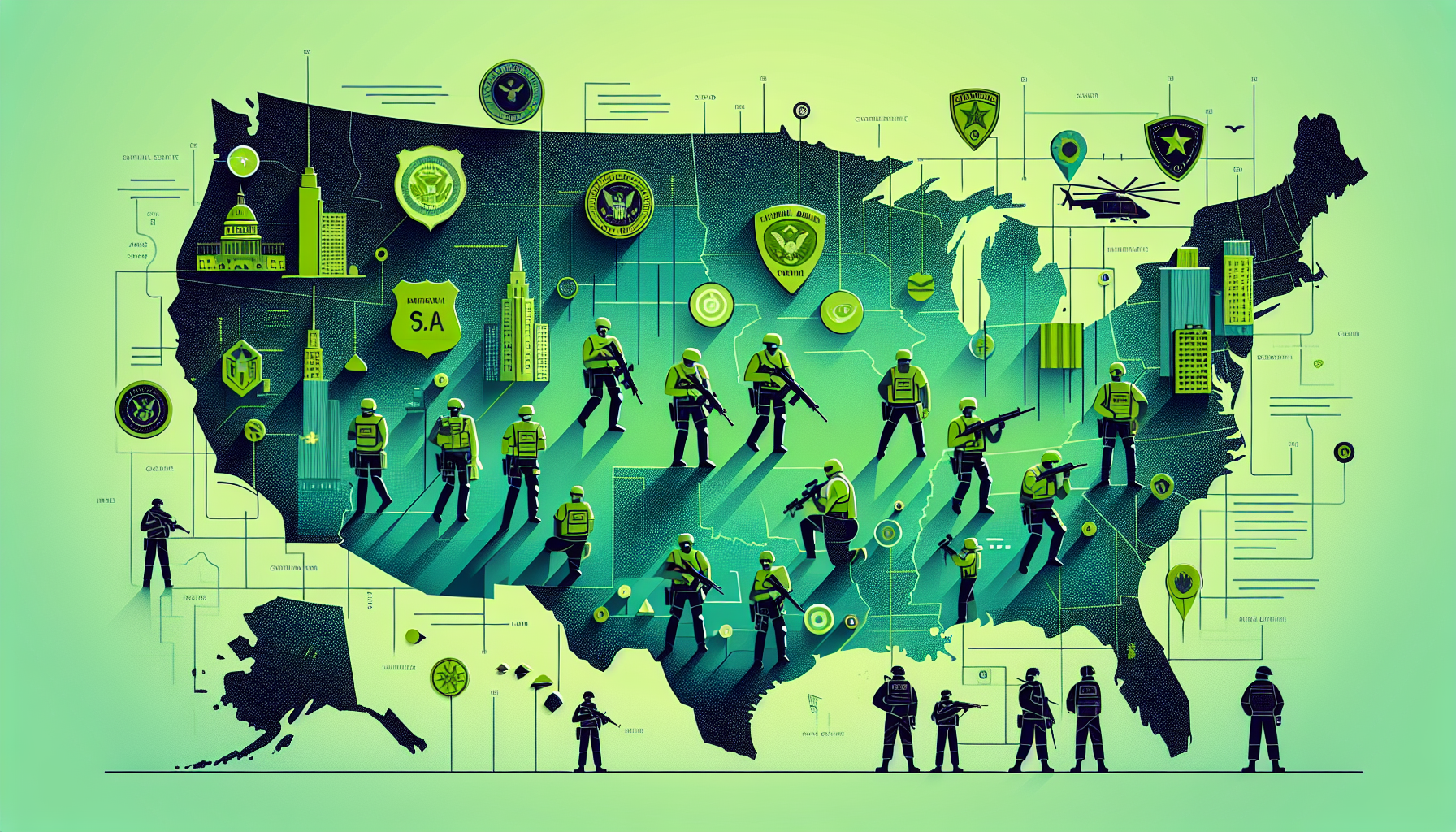“President indicates Chicago and New York could be next targets for expanded operations” Up to 1,700 National Guardsmen are set to mobilize in 19 states in the coming weeks to assist the Department of Homeland Security with President Trump’s nationwide crackd…
Why it matters
- The mobilization of National Guardsmen reflects heightened security measures in response to ongoing national concerns.
- Chicago and New York may see increased military presence as part of the President's strategy to address public safety issues.
- This initiative marks a significant federal response to urban unrest, potentially reshaping law enforcement dynamics in these cities.
In a bold move, President Trump has indicated that the federal government is preparing to expand its operational footprint in major urban centers, specifically targeting Chicago and New York. This announcement comes as part of a broader initiative to enhance national security and ensure public safety amid growing concerns over civil unrest and crime rates in these metropolitan areas. The administration plans to mobilize up to 1,700 National Guardsmen across 19 states in the upcoming weeks, signaling a substantial federal response to perceived threats.
This deployment aims to bolster the efforts of the Department of Homeland Security, which has been increasingly active in managing security operations across the nation. The President's comments suggest a proactive stance toward addressing the challenges that have emerged in urban environments, where tensions have escalated due to various social and political issues. By potentially increasing the military presence in cities like Chicago and New York, the administration is sending a clear message about its commitment to restoring order.
The decision to mobilize the National Guard is not without its critics, who argue that the presence of military personnel in civilian spaces can escalate tensions rather than alleviate them. However, supporters of the measure contend that this action is necessary to support local law enforcement agencies that may be overwhelmed or under-resourced in dealing with rising crime rates. The National Guard's involvement is seen as a way to provide additional manpower and resources that could enhance public safety efforts.
As the country grapples with a myriad of challenges, including protests, social movements, and increases in violence, the administration emphasizes the need for a united front in tackling these issues. The President’s remarks underline a clear strategy: to prioritize the safety and security of American citizens through a coordinated approach involving federal, state, and local resources.
The cities of Chicago and New York have been focal points of unrest in recent months, with protests and demonstrations drawing national attention. By targeting these locations for expanded military operations, the administration appears to be responding to calls for action from various stakeholders, including law enforcement agencies and community leaders. The hope is that these measures will help restore a sense of security and stability in areas that have been significantly affected by civil disturbances.
National Guardsmen are trained to assist in situations that require crowd control, disaster response, and support for law enforcement. Their deployment is expected to provide critical support during times of heightened tension, allowing local police forces to focus on their core responsibilities while receiving assistance in managing large gatherings or unrest.
Critics, however, warn that the militarization of the police force can lead to an erosion of trust between law enforcement and communities, particularly in urban areas that have historically faced issues of systemic inequality and discrimination. As the National Guard prepares to take on this expanded role, the administration faces the challenge of balancing the need for security with the imperative to maintain civil liberties and community relations.
The implications of this mobilization are far-reaching, as it sets a precedent for how the federal government may respond to urban unrest in the future. With the National Guard's involvement, the dynamics of local law enforcement may shift, raising questions about the long-term impact on community safety and trust.
As this situation continues to develop, the eyes of the nation will be on Chicago and New York, watching how these expanded operations unfold and what effects they may have on both public safety and community relations. The administration's approach will undoubtedly provoke a wide range of reactions as citizens and officials alike grapple with the complexities of safety, security, and civil rights in an increasingly polarized environment.











